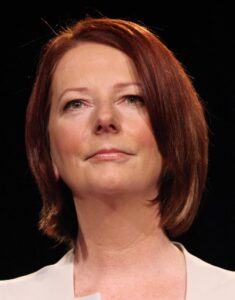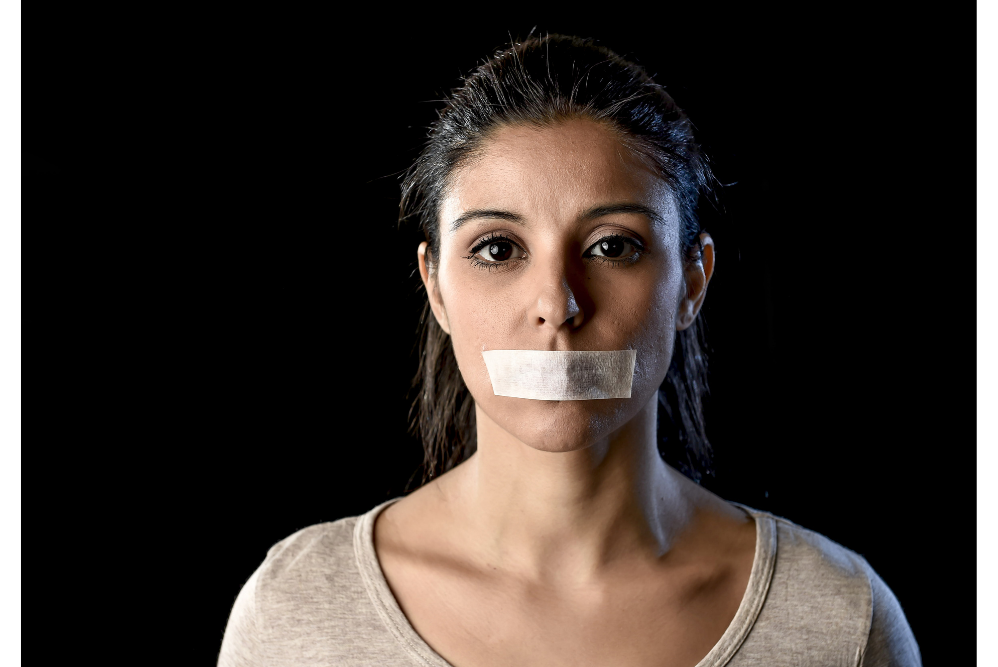Following the rape and murder of an eight-year old girl in Kashmir in April 2018, investigative journalist Rana Ayyub spoke about India’s protection of child sex abusers on the media outlets BBC and Al Jazeera. She immediately became the target of online misogyny and harassment: she was doxed and porn videos with her superimposed face were posted on Twitter and Facebook. (‘Doxed’ is when your private information – like your home address and phone number – are posted online without permission.) The videos were also shared on the fan-page of the leader of India’s ruling Bharatiya Janata Party.
As Rana’s story shows, women in the public sphere, such as journalists, human rights activists and politicians face many challenges in speaking out in public.
Our voices are often muted by sexist targeting, harassment and abuse in public, both online and offline. These silencing tactics are part of a wider culture built on normalized sexualisation and objectification of women. We argue that they are at the core of systemic discrimination against women.
Women who speak up in the public sphere commonly encounter misogynistic harassment and abuse. For example, pornification and doxing of Rana Ayyub quickly demoted her from a professional journalist to an object to be bought and sold. Screenshots from the videos were posted alongside a table of her “sex rates”, and claims circulated that she slept with her sources or with government ministers. Her authority to speak was undermined and the power of her voice to command attention in the public sphere was sabotaged.
This pattern of sexual harassment is also a typical experience of women politicians like former Prime Minister Julia Gillard, who are frequent targets of misogynist political satire and sexual jokes. Many people will remember how the menu displayed at a fundraiser for the Liberal National Party in 2013 described Gillard as a piece of bird meat with “Small Breasts, Huge Thighs & A Big Red Box”.

The sexist abuse again former Prime Minister of Australia Julia Gillard is well documented. This work is licensed under a Creative Commons Attribution 2.0 Generic License.
The misogynistic and sexualized abuse encountered by women in the public sphere begins early. More than half of underage girls worldwide face harassment and abuse online. Online spaces are increasingly used to humiliate or violate women by sexual harassment, cyberstalking, and image-based sexual abuse (known as “revenge porn”). Women who are targeted in these ways often limit their online participation, deleting their profiles or removing themselves from online spaces entirely, as did Rana Ayyub.
It is important to recognize that sexist targeting abuse, such as that directed against Rana Ayyub or Julia Gillard, is not exceptional. It is inseparable from a wider culture built on objectifying and hyper-sexualised portrayals of women in the public sphere. The advertising industry is notorious in this respect. An example is a “Fit In” advert from General Pants, showing young women nearly undressed alongside fully clothed young men, presumably with each “fitting in” in a way appropriate to their sex. Or a UFit Fitness advertisement that depicts a woman’s backside with the slogan, “There’s better things to be stuck behind than the car in front.”
Women and girls at increasingly young ages, are portrayed in a sexualised manner on social media and by the digital advertising industry. Such sexist objectification marks out public spaces as a male domain, in which women are mere objects and their voices are subject to derision and mockery, or belittlement.
This wider sexist objectification of women is further perpetuated and normalized by the pornography industry, which places its profits over the rights, safety, and dignity of women. The industry’s output routinely involves high levels of degradation, violence, and humiliation of women, as well as profiting from revenge porn and sexist targeting of women. The largest pornography platform PornHub is currently being sued for hosting videos of rape, child sexual exploitation, trafficking and other non-consensual sexual content, which the company refuses to take down despite repeated requests by victims like Hollywood actress Bella Thorne.
The sex industry’s profits from online abuse are part of broader sexist phenomena that evidence and reinforce sex discrimination against women. We call this “systemic discrimination” because it is a structural pattern that systematically impairs or nullifies the fundamental rights and freedoms of all women.
The Convention on the Elimination of all Forms of Discrimination against Women requires that women be able to exercise and enjoy their human rights and fundamental freedoms with dignity and equality. But when women are mocked, harassed, silenced and perceived only as sexual objects, their right to full and free participation in the public sphere is undercut. And that is systemic discrimination.
After a period of silence following sexist abuse and targeting online, Rana Ayyub spoke out publicly to let other women know of how her voice and public expression were undermined because she was a woman. The burden of fighting back against systemic discrimination should not fall on individual women. Only a concerted effort to de-normalize the objectification and sexualisation of women and girls, whether in mainstream advertising or the pornography industry, will enable us to speak freely in public – and enable our voices to be heard.
- The authors would like to acknowledge and pay respects to the Traditional Custodians of the land on which they work and live, particularly the Bidjigal and Gadigal Peoples, and their elders, past and present. The authors also thank Australian Government Research Training Program for PhD Scholarship; and Australian Research Council for research funding under Discovery Early Career Research Award scheme (project number DE210101183).
Please note: The feature image is a stock photo.







